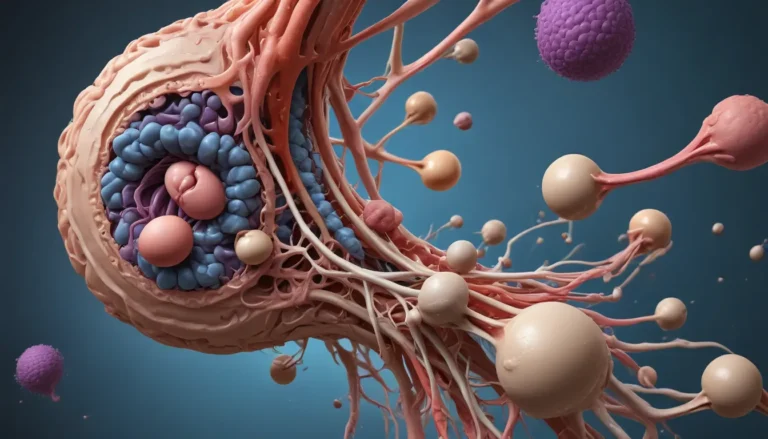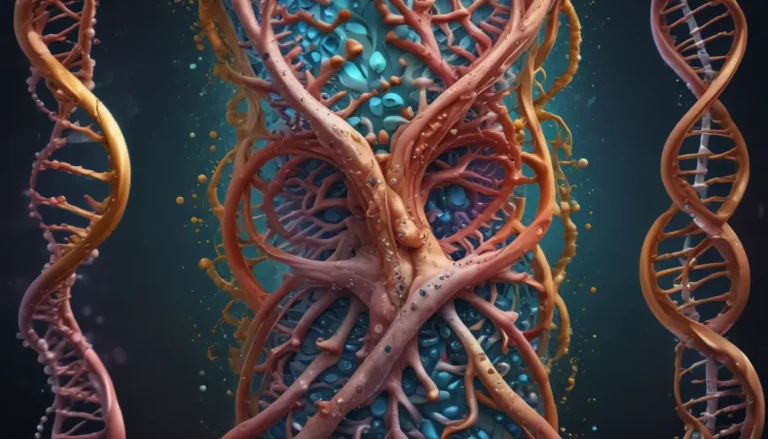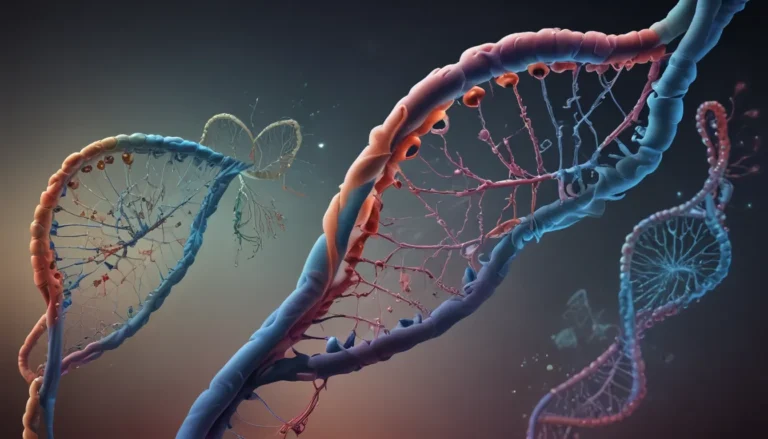A Note About Images: The images used in our articles are for illustration purposes only and may not exactly match the content. They are meant to engage readers, but the text should be relied upon for accurate information.
Genetic testing has revolutionized the realms of biology and medicine, offering invaluable insights into our genetic blueprint. By analyzing DNA samples, this innovative technology unveils variations or changes associated with health conditions, ancestry, and personalized traits. As advancements make genetic testing more accessible and affordable, individuals can delve deeper into their genetic predispositions. In this article, we will unravel 18 captivating facts about genetic testing, shedding light on its diverse applications and significance. From uncovering hidden ancestry to predicting disease risks, genetic testing continues to shape our understanding of ourselves and our potential health outcomes.
Unveiling the Power of Genetic Testing
- Genetic testing reveals ancestry, predicts disease risk, and guides personalized medicine. It’s like a genetic roadmap for your health and family history!
- Genetic testing is like a genetic detective, solving mysteries about paternity, inherited conditions, and even human migration patterns. It’s a fascinating tool for understanding our genetic story!
Delving into the Applications of Genetic Testing
Insights into Ancestry
Through DNA analysis, genetic testing can unveil information about your ethnic origins and ancestral lineage. It offers a window into the rich tapestry of your genetic heritage.
Prediction of Disease Risks
By identifying specific genetic markers, genetic testing can indicate an individual’s susceptibility to various conditions, including cancer, heart disease, and Alzheimer’s. It empowers individuals to take proactive measures for their health.
Personalized Medicine
Healthcare providers can tailor treatments and medications to an individual’s genetic profile through genetic testing. This personalized approach enhances the effectiveness and precision of medical care.
Detecting Genetic Disorders in Unborn Babies
Prenatal genetic testing enables expectant parents to screen for chromosomal abnormalities and genetic disorders in the developing fetus. It equips them with crucial insights for informed decision-making during pregnancy.
Establishing Paternity
DNA analysis through genetic testing can determine biological relationships and establish the biological father of a child with a high degree of accuracy. It provides clarity and certainty in familial relationships.
Identifying Inherited Conditions
Genetic testing can pinpoint inheritable gene mutations that may lead to conditions like cystic fibrosis, Huntington’s disease, or sickle cell anemia. This knowledge aids in early detection and proactive management of inherited conditions.
Forensic Investigations
Techniques like DNA profiling are instrumental in criminal investigations, helping match suspects to crime scene evidence or establish familial relationships. Genetic testing plays a vital role in forensic science.
Genetic Counseling Support
For individuals with a family history of genetic conditions, genetic testing offers valuable information for reproductive decision-making and family planning. Genetic counseling provides a supportive framework for interpreting and utilizing genetic test results.
Drug Compatibility Determination
Some genetic tests reveal how individuals metabolize medications, assisting healthcare providers in determining the safest and most effective treatment options. This tailored approach improves patient outcomes.
Identifying Potential Carriers of Genetic Diseases
By identifying carriers of genetic mutations for specific conditions, genetic testing aids in family planning and informed decision-making. It empowers individuals to take proactive steps towards their health.
Optimal Diet and Exercise Plans
Genetic analysis provides insights into genetic predispositions related to metabolism, nutrient absorption, and physical fitness. This information guides individuals in making informed choices for their diet and exercise routines.
Verification of Biological Relationships in Immigration Cases
In immigration proceedings, genetic testing serves as a reliable method to establish biological relationships between family members when documentation is limited or questionable. It helps uphold the integrity of family ties during immigration processes.
Tracing Human Migratory Patterns
By studying genetic variations in populations, researchers can trace the migration routes of ancient human populations. This genetic journey offers profound insights into human history and evolution through the lens of genetics.
Identifying Carriers of Hereditary Cancer Genes
Genetic testing can identify individuals carrying mutations in genes like BRCA1 and BRCA2. This knowledge enables proactive measures to reduce the risk of developing certain types of cancer, such as breast or ovarian cancer.
Personalized Treatment Plans for Cancer Patients
Through genetic profiling of tumors, genetic testing assists oncologists in selecting the most effective treatments based on the unique genetic makeup of each patient’s cancer cells. It paves the way for tailored cancer therapies.
Varied Methods of Genetic Testing
Techniques such as polymerase chain reaction (PCR), DNA sequencing, and microarray analysis allow for comprehensive genetic testing. These methods offer a diverse toolkit for analyzing genetic information.
Simultaneous Analysis of Multiple Genes
Advancements in technology have made it feasible to analyze multiple genes in a single test, enhancing the comprehensiveness and accuracy of genetic testing results. This holistic approach provides a deeper understanding of an individual’s genetic landscape.
Accessibility and Affordability of Genetic Testing
With technological progress and increased market offerings, genetic testing is becoming more accessible and affordable to individuals seeking insights into their genetic health and ancestry. This democratization of genetic information heralds a new era of personalized healthcare.
Conclusion: Embracing the Future of Genetic Testing
In conclusion, genetic testing stands at the forefront of healthcare innovation, illuminating individuals’ genetic makeup and guiding personalized health decisions. From predicting disease risks to identifying inherited conditions, genetic testing offers a myriad of benefits that empower individuals to take charge of their well-being. As technology advances, genetic testing becomes more accurate, accessible, and cost-effective. However, it is imperative to approach genetic testing with caution and seek professional guidance for accurate interpretation of results. With its potential to unlock a wealth of information about our genetic blueprint, genetic testing is reshaping the landscape of medicine and paving the way for tailored healthcare solutions.
FAQs: Navigating Genetic Testing Queries
Q: What is genetic testing?
A: Genetic testing analyzes an individual’s DNA to identify variations or changes in specific genes or chromosomes, providing insights into genetic predispositions and health markers.
Q: What are the benefits of genetic testing?
A: Genetic testing offers valuable information on disease risks, medication responses, and inherited conditions, enabling personalized healthcare decisions and informed lifestyle choices.
Q: How accurate is genetic testing?
A: While genetic testing has become increasingly accurate, no test is flawless. Genetic testing may yield false positives or false negatives, necessitating interpretation with healthcare professionals for comprehensive understanding.
Q: Are there risks or limitations to genetic testing?
A: Genetic testing presents some risks, including emotional implications of health insights, and limitations like potential false results for complex conditions. Seeking professional guidance is key.
Genetic testing’s evolution heralds a new era of personalized healthcare, offering profound insights into our genetic identity and health landscape. Join us on this genetic journey to unlock the mysteries of our DNA and pave the way for a future where health decisions are tailored to our unique genetic makeup.






